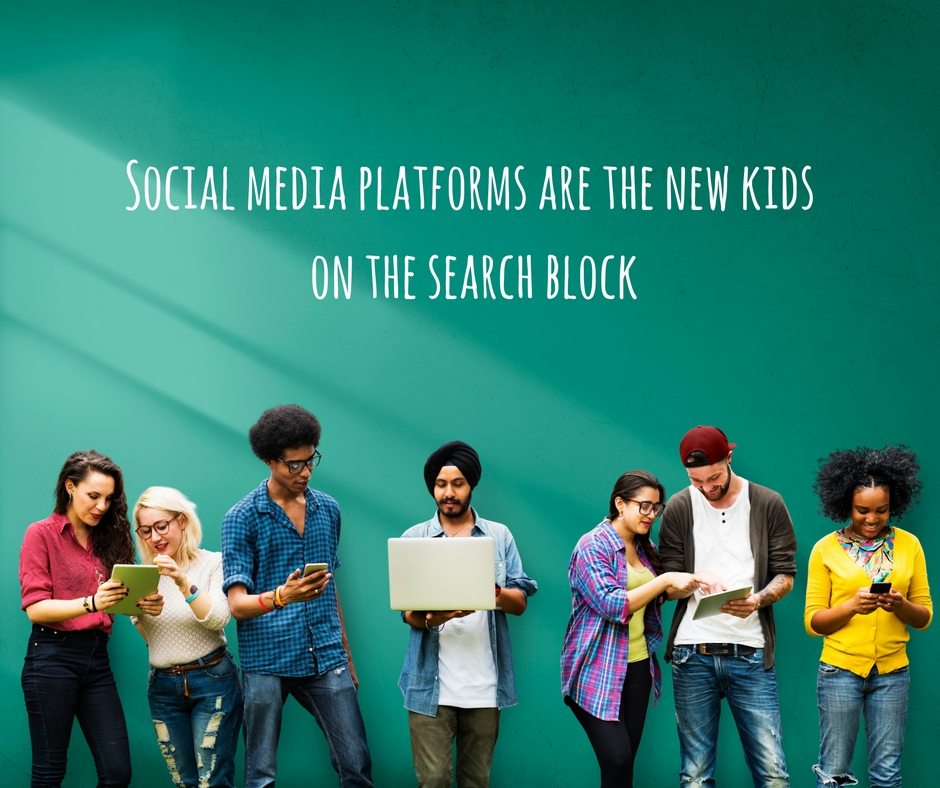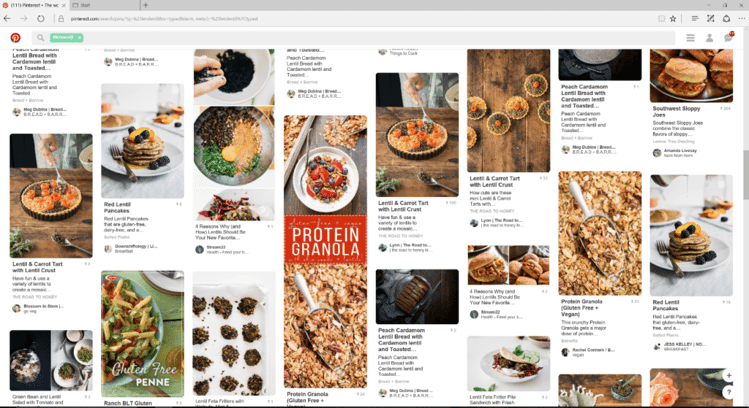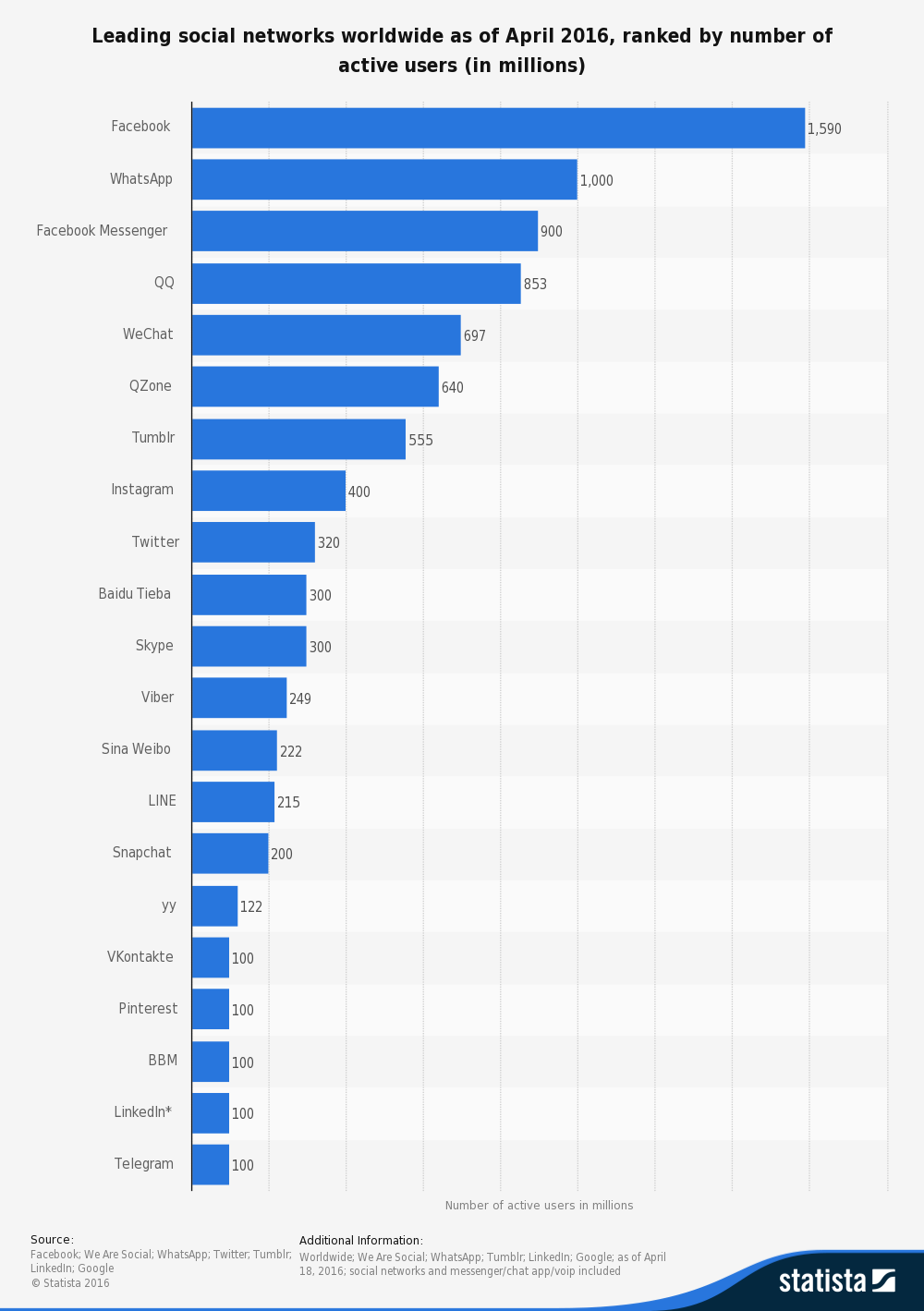Search engines could face new competition as search on social increases.
More than one trillion searches every year. Forty thousand search queries every second. As an all-but-unassailable tech titan, Google has long dominated the search landscape, boasting more users than the next fourteen search engines (including such names as Bing, Yahoo!, Ask, AOL) combined.
There are, however, some new kids on the search block: Pinterest, Facebook, Twitter, and their social media stablemates. They're ready to do battle with the 'Big G' — and they're a technological tag team that could revolutionize the future of search.

Why Social Search Matters
Unlike Google — which scours the Internet before indexing content — Twitter's search results are instant. Marketers can discover what someone thinks about their company in real-time — usually, in mere seconds — perfect for gauging brand perceptions.
Free Guide: 6 Ways to Measure Influencer Marketing. Click here!
Pinterest is an incredible search engine – think how many people look for and save recipes, home decorating tips, and a myriad of other things here. Social search continues to give life to evergreen content – like our client Canadian Lentils’ great recipes using lentils.
 Campaign board for Carusele client Canadian Lentils
Campaign board for Carusele client Canadian Lentils
Facebook proves just as lucrative for marketers: the world's third-most visited website (and the US’s second-most visited) now enables users to find content on the platform without restrictions, with more than two trillion posts available to search. "This is the future for Facebook," said Doug Peeples, digital media manager for Chevrolet. "They view Google as a competitor. Search on social is new and growing, and it’ll be interesting to see where it goes."
Social Search vs. Traditional Search
While social search engines, as relative newcomers, still lack the market share of the search elite, more consumers are hunting for content across multiple channels. In fact, YouTube generates more search queries than Bing and AOL, despite not being a conventional search engine. It seems consumers aren't afraid to venture forward and search for content in unconventional places.
Take Instagram's search feature, for example, where users can find posts that aren't always indexed by Google et al. Social search engines use their own, unique algorithms — based on a user's interests and behavioral patterns — and deliver creative, compelling, must-click content for audiences.
Influencer Marketing Targets Consumers Who Use Social Media and Search Engines
Influencer marketing works because it targets interested people across both social media and search. Users discover new content by clicking on hashtags and trending topics. They uncover brands that would normally languish on page two — or three or four — of Google's search listings. They view content by start-ups and scale-ups and small enterprises, not just the same old brands that dominate traditional search results. This means new perspectives from content creators that have built up a niche-specific audience: authority figures, specialists, thought leaders.
Carusele introduces marketers to influencers who create content that reaches prospects on Facebook, Twitter, Instagram and other social media platforms. These content creators target users on traditional search engines, too, providing brands with the best of both worlds.
Think of it this way. Influencer content gets its first value from the initial social shares, passed around among people with an interest in the category. But then it pays out over the long-term as people search for inspiration, products or great content on their favorite social channels.
Takeaway
Social search engines provide users with up-to-the-minute content based on trending and relevant topics. While the bulk of consumers still use traditional search engines to find information — 93 percent of online experiences start with a search engine — social search is booming.
Social media now drives a huge 31 percent of all referral traffic, providing marketers with a massive return on their investment. Carusele connects marketers with influencers who create content for social platforms. The company combines media buys from organic, engaged and paid sources and places highly-relevant content across the social sphere. Content is designed to last for months (or years) and is distributed through various syndication programs.
Contact us today to find out how we can help get your content discovered on social.
-1.png?width=504&height=360&name=Carusele%20logo%20%C2%AE%20logo%20Color%20(2)-1.png)
